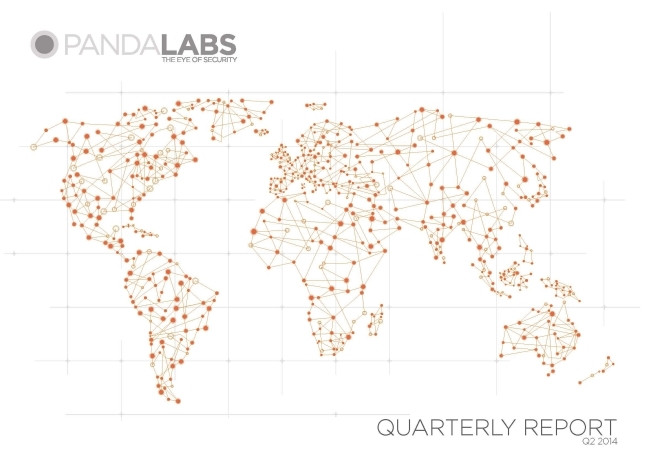This week, Panda Security announced the Q2 2014 results from PandaLabs. Malware is still being created at record levels, roughly 15 million new samples were generated - an average of 160 000 daily.
Trojans remain the most common type of malware, accounting for 58.20% of new malware and 62.8% of infections. This figure is significantly lower compared to the previous quarter, at 71.85% and 79.9%. The difference is, however, not due to a decline in the number of new Trojans, but rather a substantial increase in PUPs (potentially unwanted programs).
In recent months, there has been a notable increase in software bundlers, which install PUPs - without the user's consent - along with the original program. According to the report, PUPs account for 24.77% of infections. In most instances these programs change browser settings, display unwanted advertising or install additional programs that the user may or may not want.
"Potentially unwanted programs or PUPs as we know them, do not exploit security holes. These programs are installed by the users themselves - unwittingly in many cases - hence the term 'potentially' unwanted programs. There is often no difference between traditional malware and a PUP, except that PUPs get distributed by legitimate entities with an end-user licence agreement (EULA)," explains Country Manager Jeremy Matthews.
Worms are the second most common malware at 19.68%, accounting for 2.66% of infections, followed by adware/spyware (0.39%), which account for 7.09% of infections and viruses (0.38%) accounting for 2.68% of infections.
The second quarter saw an increase in attacks on mobile devices, targeting Apple iOS in addition to Android. The recent attacks on Android have involved fake anti-virus apps and ransomware. There were also a number of attacks affecting major companies across different sectors; companies such as eBay, Spotify and Domino's Pizza.
April saw the discovery of an extremely dangerous security hole - dubbed Heartbleed - which affected many major Web sites. This happened at the same time as support for Windows XP ended. It was essentially a security hole in the OpenSSL library, which is used for encrypting communications. Servers using the library were then vulnerable to attacks. Many Internet services, such as Webmail, social networks, online banking and more made use of this library to encrypt communication and to protect the data exchanged (bank login credentials, passwords, etc).
The global infection rate has increased to 36.87%. China remains the country with the most infections, with a rate of 51.05%, followed by Peru with 44.34% and Turkey with 44.12%.
These figures show that Asia and Latin America have the highest level of infections, with Europe ranking the lowest. Sweden (22.13%), Norway (22.26%) and Germany (22.88%) show the lowest infection rates within Europe. Japan has an infection rate of 24.21%, falling within the top 10 least infected countries and the only non-European country to appear in this list.
For the full PandaLabs report, click here.

Share
Panda Security
Panda Security is the world's leading provider of cloud-based security solutions, the first IT security company to harness the power of cloud computing with its Collective Intelligence technology, automatically analysing and classifying thousands of new malware samples every day. This guarantees corporate customers and home users the most effective protection against Internet threats with minimum impact on system performance. In 2006, Jeremy Matthews founded Panda's local subsidiary in Cape Town, opening the international vendor's first presence on the African continent.
For more information, visit http://www.pandasecurity.co.za/.
Editorial contacts